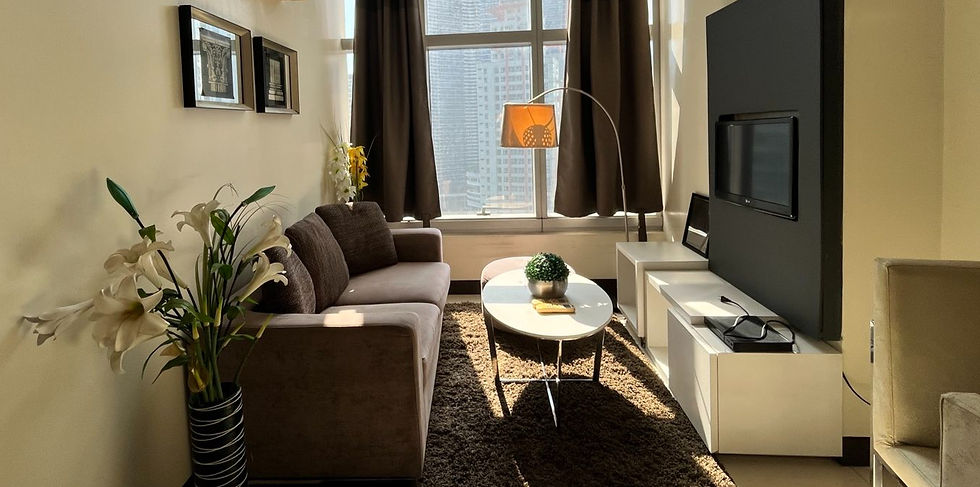Maximizing Tenant Retention in Manila's Real Estate Rental Market: 5 Strategies for Building Long-Term Relationships and Enhancing Property Value
- bedandgoinc
- 2024年8月28日
- 読了時間: 3分
Date: August 28, 2024
Retaining tenants not only reduces vacancy rates and the associated turnover costs but also fosters a sense of community within the property, enhancing its overall appeal. With an increasing number of rental options available, tenants today have higher expectations and are more discerning in their choices. This blog will explore five key strategies that property owners and managers can implement to improve tenant retention in Manila's real estate properties in 2024. By focusing on understanding tenant needs, providing excellent customer service, maintaining properties to high standards, offering attractive incentives, and building strong relationships with tenants, landlords can ensure a more stable and satisfied tenant base.
1. Understanding Tenant Needs and Preferences
In Manila, where the rental market is diverse and dynamic, tenants' preferences can vary widely based on factors such as lifestyle, family size, and work location. Conducting regular surveys and feedback sessions can provide valuable insights into what tenants value most, whether it's proximity to public transportation, modern amenities, or flexible lease terms. By actively listening to tenant feedback and making necessary adjustments—such as upgrading facilities or offering customizable living spaces—landlords can significantly enhance tenant satisfaction. This proactive approach not only meets tenants' expectations but also shows that the property management team is committed to creating a living environment that aligns with their desires, ultimately fostering loyalty and encouraging lease renewals.
2. Providing Excellent Customer Service
Excellent customer service goes beyond simply addressing maintenance requests; it encompasses every interaction between tenants and property management. Training staff to be responsive, courteous, and knowledgeable can create a positive and lasting impression on tenants. Promptly addressing concerns, offering timely solutions, and maintaining clear and open communication channels are crucial in building trust and satisfaction. Moreover, providing personalized services, such as assistance with move-in processes or organizing community events, can enhance the tenant experience. When tenants feel valued and supported, they are more likely to develop a strong attachment to their living environment and renew their leases, reducing turnover and enhancing the property's reputation in the market.
3. Maintaining the Property
Regular maintenance checks, prompt repairs, and ongoing improvements to the property's common areas and amenities can greatly enhance the tenant experience. Property managers should prioritize tasks such as pest control, plumbing inspections, and HVAC maintenance to ensure that tenants' comfort and safety are never compromised. Additionally, investing in the aesthetic appeal of the property—such as landscaping, repainting, or upgrading communal spaces—can make the living environment more enjoyable and attractive. When tenants see that their landlord is committed to maintaining the property's quality, they are more likely to stay longer, knowing they are in a place that values their well-being and comfort.
4. Offering Incentives and Rewards
Landlords can implement loyalty programs that reward tenants for renewing their leases or referring new tenants. These rewards could range from rent discounts, waived fees, or even complimentary services such as professional cleaning or maintenance. Additionally, hosting tenant appreciation events or providing small tokens of gratitude, such as personalized gifts or handwritten notes, can make tenants feel valued and appreciated. These gestures not only strengthen the relationship between tenants and landlords but also create a positive living experience that tenants are less likely to want to leave. By offering meaningful incentives, landlords can differentiate their properties from others in the market and build a loyal tenant base that contributes to long-term stability and reduced turnover.
5. Establishing Good Relationships with Tenants
Building and maintaining strong relationships with tenants is essential for long-term retention. Property managers should engage with tenants not only during times of need or complaint but also through routine updates, newsletters, or community-building activities. Recognizing and rewarding long-term tenants with special perks or acknowledgment can also reinforce their sense of belonging and loyalty. By cultivating a positive, respectful, and supportive relationship with tenants, landlords can create a community atmosphere that encourages tenants to renew their leases year after year, thus ensuring consistent occupancy and a harmonious living environment.
As Manila's real estate market continues to evolve in 2024, improving tenant retention will remain a top priority for property owners and managers. The strategies discussed—understanding tenant needs, delivering exceptional customer service, maintaining high property standards, offering attractive incentives, and fostering strong tenant relationships—are all integral to achieving this goal. By focusing on these key areas, landlords can create a living environment that not only meets but exceeds tenant expectations, leading to higher satisfaction and increased lease renewals. The benefits of improving tenant retention extend beyond financial stability; they include building a positive reputation in the market, fostering a sense of community, and ultimately contributing to the long-term success of the property. As landlords and property managers implement these strategies, they will find that their efforts in prioritizing tenant satisfaction and engagement will yield significant rewards in the form of a loyal and content tenant base.
Reference:













コメント